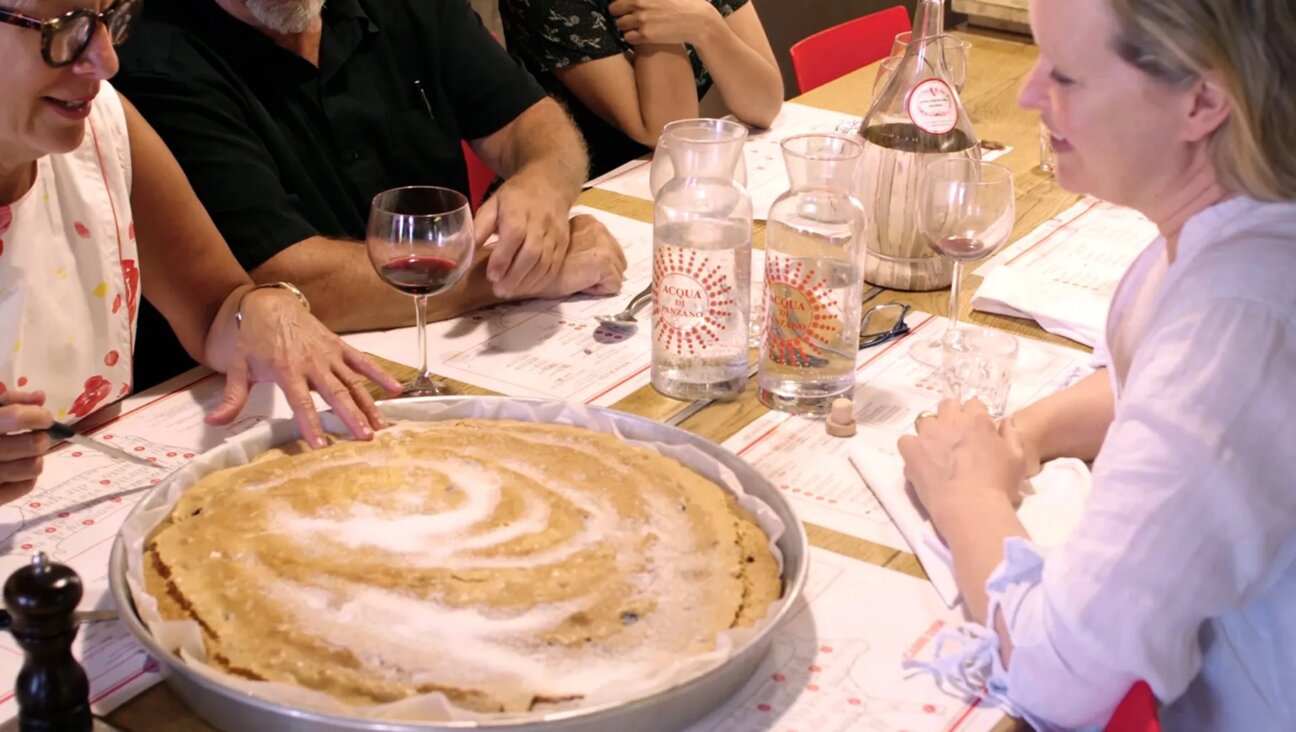Five-Fold Challah

Image by Jessica Fechtor
A fabulous challah recipe from Jessica Fechtor’s
- Read about the book “Stir: My Broken Brain and the Meals That Brought Me Home,”
- Marcella’s Butter Almond Cake
Based on a tip from Andew Janjigian, a baker and editor at Cook’s Illustrated magazine, Jess folds the dough instead of kneading it, and lets it rise in the fridge for 16–24 hours. The recipe calls for instant dry yeast rather than active dry yeast (which requires proofing). Fechtor recommends SAF-Instant yeast or Fleischmann’s BreadMachine or Rapid-Rise Yeast.
Makes 2 loaves
Dry ingredients:
4 cups (500 grams) bread flour
1 ½ teaspoons instand dry yeast
2 teaspoons fine sea salt
Wet ingredients:
2 large eggs plus 1 large egg yolk (save the extra white in a covered glass in the fridge for glazing later on)
¾ cup (190 grams) water
1/3 cup (75 grams) olive oil
¼ cup (85 grams) honey
For sprinkling, before baking (optional):
Flaxseeds
Rolled oats
Sunflower seeds
Pumpkin seeds
1) Whisk together the dry ingredients in a large bowl, and the wet ingredients in a smaller bowl. Dump the wet ingredients into the dry ingredients and stir with a rubber spatula until a wet, sticky dough forms. Cover the bowl with plastic and let sit for 10 minutes.
2) Peel back the plastic. Grab an edge of the dough, lift it up, and fold it over itself to the center. Turn the bowl a bit and repeat around the entire lump of dough, grabbing an edge and folding it into the center, eight turns, grabs and folds in all. Then flop the dough so that the folds and seams ore on the bottom. Cover tightly again with the plastic, and let sit for 30 minutes.
3) Repeat the all-around folding, flipping, covering and resting for 30 minutes four more times. (I keep track by drawing hash marks in permanent marker right on the plastic.) The dough flops more than it folds in the first round or two. Then, as the gluten develops, you’ll get proper folds. By the final fold, the dough will be wonderfully elastic, and you’ll be able to see and feel the small pockets of air within. Pull the plastic tight again over the bowl and refrigerate for 16 to 24 hours.
4) Cover a baking sheet with parchment paper and set aside. Transfer the dough to a lightly floured surface and divide into six equal pieces. Roll into six strands, about a food long and ¾ inch in diameter, dusting sparingly with flour when necessary to prevent sticking. (You’ll want to add as little extra flour as possible.) Form two three-strand braids, and transfer the loaves to the prepared pan. Cover with plastic and let proof at room temperature for 2 to 3 hours, until the dough is noticeably swollen and puffed and bounces back, very slowly, if at all, when you poke it lightly with your finger.
5) Preheat the oven to 375˚ F.
6) Remove the plastic from the loaves and brush with the reserved egg white. If you’d like, sprinkle with seeds. Poppy and sesame seeds are traditional challah toppings. I typically cover one with a combination of flaxseeds and rolled oats, and the other with sunflower seeds and pumpkin seeds, though lately I’ve been opting for no seeds at all.
7) Bake for about 20 to 25 minutes, until the bread is golden and gorgeous and a tester inserted into the center comes out clean. You can also check for doneness with a thermometer. The internal temperature of the loaves will be 190˚ F when fully baked.
8) Transfer to racks and let cool.
Reprinted with permission from “Stir: My Broken Brain and the Meals That Brought Me Home,” by Jessica Fechtor. Recipe notes have been summarized from the original headnotes in the book.























